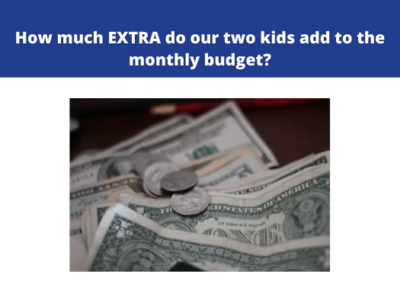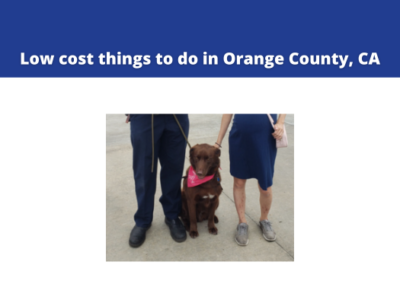Given how little literature is out there, I’m going to record and give the world a bit insight into the absolute convoluted world of co-op abatements and assessments in New York City, and how I’m slowly and surely, receiving around $3,500 – $4,000 back in taxes. Literally before I started this process the only links I had to help me were: 1. Streeteasy forum 2. Habitat forum 3. Brownstoner

What is a co-op?
About 75% of housing in Manhattan are co-ops. When you own a co-op unit, you don’t have a deed. Instead, the entire building is essentially a cooperative entity (hence the name “co-op”), and the square footage you own converts into shares. You receive a proprietary co-op lease that allows you to live in your home. Co-ops are a pain to purchase and honestly a bit personally intrusive (we had 4 letters of recommendation, provided 2 years of tax returns, and went through the interview), but typically have a 15-20% price discount per square foot, compared to condos.
What is an abatement?
New York City has various programs for residents who use their home as their primary residence such as the STAR, that gives you a tax break. Not everyone qualifies for such programs, and ever since the government moved under DeBlasio, the process to ensure you qualify for and get credited on-time for an abatement has become much more complicated and not-consumer-friendly. The onus is now on the management companies and homeowners to fight the automatic “no” or any small technical detail that causes you to disqualify for an abatement.
In our building, the process to ensure we qualify for the abatement comes in the form of one obscure mailing typically sent in February of each year, for the following tax year. So as a new homeowner, we typically have to pay out of pocket for the first year (we bought in fall 2015, so we missed the February 2015 mailing for tax year 2016).
Everyone gets assessed first
Regardless of our individual status, all buildings are assessed this tax. Our building, to pay for this year’s assessment, will charge all units the assessment first according to our shares. Then in the following year, those who qualify for the abatement, receive it back as a credit. Essentially the whole process is meant to wash out – those who qualify, such as my husband and I – should end up not paying this particular tax each year. But the offset of the years creates a ton of confusion, and was explained to us at closing (and promptly forgotten).
So what did we pay?
In June 2016, as expected, we paid “out of pocket” for our first assessment, I think it was about $1,500. Ouch, that’s 4 months’ of groceries and eating out for us! But this one was expected to be paid out.
In June 2017, we paid “out of pocket” again for tax year 2017 to the tune of about $1,500, and did not receive an abatement for 2016, because we missed the deadline to file to qualify for abatement. In June 2018, we paid again, for tax year 2018, to the tune of about $2,000, and did not receive the abatement for 2017. This is when I started suspecting something was not right
What do you need to know before proceeding?
The street address of your building. The property type (co-op or condo). Block and lot number. You can look it up
Your managing agent is supposed to be your advocate
I first wrote the managing agent of my building. She unfortunately told me this was an issue with the Department of Finance (DOF) and told me to call 311 to deal with it. One of the key habits I teach in Save My Cents is that… the only person who cares about your money is yourself. So it doesn’t matter whether legally she was obligated to help me or not, she failed, and did not help me. I later gave them an earful about this so it was on record.
Who to contact
There are a few emails in the NYC government system. ALL of them try to ask you to visit the DOF page first to submit your grievance. I have had varying success with each of them. The results are such:
PropertyTaxBill@finance.nyc.gov – this email was able to tell me whether there is or is not an abatement credit for my unit in the current tax year. But ultimately did not help us
CoopabaT@finance.nyc.gov – this is an email often published in forums. THIS is the right email. But they can take months to get back to you
We ultimately went through a friend who had connections within the government to patch us through to someone on the inside of the government who helped us push our case directly. They did it out of the goodness of their hearts.
Our timeline
May: Receive statements that we were going to be assessed
June: Assessed for 2018, did not receive abatement for 2017
June: Emailed propertytaxbill@finance.nyc.gov and got confirmation we were owed an abatement, but no further response
July: Got in contact with friend on inside. In parallel, started a case with coopabat@finance.nyc.gov
Mid-August: Friend on the inside notified our property management company. We learned that our 2017 tax year status was entered incorrectly, which is why we did not receive an abatement. After 26 emails, I received all the evidence and proof I needed. Was also provided with the correct contact at my management company, which was NOT the agent for our building
September: Sent a rather threatening email to the new contact at our management company, as well as our building’s agents, with multiple attachments, basically telling them it was their legal obligation to give us money back
September: coopabat@finance.nyc.gov also got back to me and got our names on the file corrected (our last name was also typed incorrectly)
Mid-September: Got on phone with my management company, and worked out expectations on when we’d be credited for 2017 and 2018. Our 2017 check should arrive November. 2018 check will hopefully arrive next June. The management company noted that she had more than 10 cases similar to mine, but mine was the only one that the government expedited back – because of my persistence and pecking through multiple emails.
What if I don’t have a government friend?
I had a few more ideas if this original route did not work.
One, I actually threatened in an email to coopabat@finance.nyc.gov (after 15 days of no response) that I was going to escalate to Office of the Taxpayer Advocate, which is an entity that is separate from the DOF, that helps resolve issues after dealing with the DOF has failed.
Another idea I have is contacting your local government representative. For example, I’m on the email list of our local district city council representative and know her office hours, so she is one more person I would have approached. The money is a significant amount that I was not going to give up, even if it took all year! (I gave myself a December 31 deadline)
Get the most out of Save My Cents by joining my Facebook group
See daily inspiration on Instagram @savemycents





